Science News: Recent scientific discoveries and expert analysis
Read the latest science news and recent scientific discoveries on Live Science, where we've been reporting on groundbreaking advances for over 20 years. Our expert editors, writers and contributors are ready to guide you through today's most important breakthroughs in science with expert analysis, in-depth explainers and interesting articles, covering everything from space, technology, health, animals, planet Earth, and much more.

Explainers | Everything you need to know about the science news that matters.

Science Spotlight | Shining a light on new science transforming our world.
Latest news
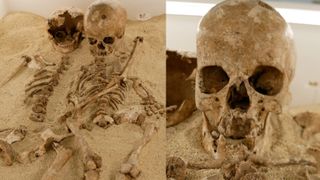
Teenage girl who lived in Italy 12,000 years ago had a rare form of dwarfism, DNA study shows
By Sascha Pare published
In 1963, researchers unearthed two Stone Age skeletons that were buried in an embraced position in a cave in Italy. Now, DNA testing has revealed that one of them had a rare genetic condition.
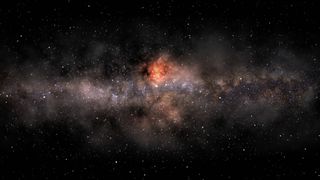
Complex building blocks of life can form on space dust — offering new clues to the origins of life
By Victoria Atkinson published
The complex building blocks of life can form spontaneously in space, a new lab experiment shows.

Can AI detect cognitive decline better than a doctor? New study reveals surprising accuracy
By Anirban Mukhopadhyay published
Designed to assist rather than replace doctors, a new autonomous tool scans clinical notes to highlight patients who may need urgent follow-up for cognitive decline and potential dementia.
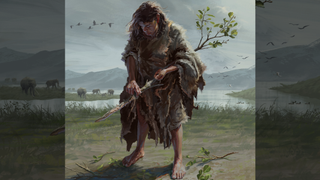
430,000-year-old wooden handheld tools from Greece are the oldest on record — and they predate modern humans
By Owen Jarus published
Archaeologists have found the oldest-known surviving examples of handheld wooden tools.

Next-generation AI 'swarms' will invade social media by mimicking human behavior and harassing real users, researchers warn
By Patrick Pester published
Artificial intelligence experts have warned that AI "swarms" are poised to infiltrate social media by deploying agents that mimic human behavior and exploit our tendency to follow the herd.
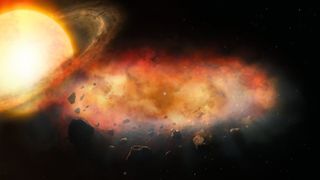
Giant 'metal cloud' in nearby star system could be hiding an undiscovered sun
By Harry Baker published
Astronomers suspect that a massive metallic cloud swirling in a nearby star system could be hiding a giant planet or dwarf star from view, after it drastically dimmed a sun-like star for around nine months.
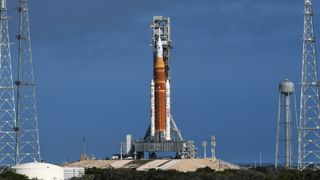
NASA is preparing for simulated launch of Artemis II mega moon rocket — and it could happen as early as Saturday
By Patrick Pester published
NASA has announced it will fuel the Artemis II rocket as part of a simulated launch that will take place as early as Saturday (Jan. 31).

Days numbered for 'risky' lithium-ion batteries, scientists say, after fast-charging breakthrough in sodium-ion alternative
By Rory Bathgate published
An innovative approach to battery materials could bring sodium-ion energy density and charging speeds far closer to those of lithium-ion, scientists say.

Liquid-nitrogen-infused cocktail popped a man's stomach like a balloon
By Kamal Nahas published
Liquid nitrogen can be used safely in food preparation — but one man's stomach burst after he threw back a cocktail that had been cooled with the substance.

See February's full Snow Moon rise this weekend next to a glittering star cluster
By Jamie Carter published
February's full "Snow Moon" will be at its fullest on Sunday, Feb. 1, and will be best seen at moonrise. It will appear just beneath the Beehive Cluster, one of the closest star clusters to the solar system.

'Doomsday Clock' ticks 4 seconds closer to midnight
By Stephanie Pappas published
The Bulletin of the Atomic Scientists now says humanity is a metaphorical 85 seconds to global disaster.
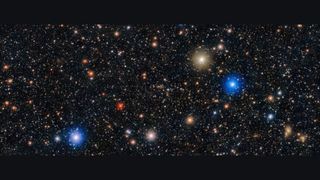
Standard model of cosmology holds up in massive 6-year study of the universe
By Skyler Ware published
The six-year Dark Energy Survey has released its full results, showing that two leading models of cosmology are equally valid — but both fail to explain one key observation.
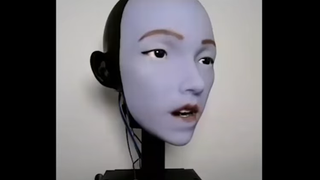
Creepy humanoid robot face learned to move its lips more accurately by staring at itself in the mirror, then watching YouTube
By Fiona Jackson published
EMO the robot learned how its silicone lips would move in response to its 26 facial motors by staring at its reflection.
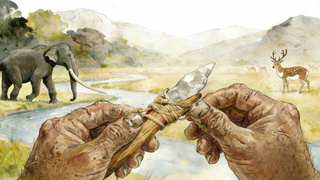
160,000-year-old sophisticated stone tools discovered in China may not have been made by Homo sapiens
By Owen Jarus published
Archaeologists have found the oldest known evidence of hafted tools in East Asia, and they challenge a previously held assumption about stone tool use.
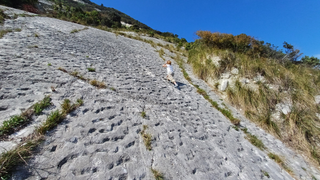
Rock climbers in Italy accidentally discovered evidence of an 80 million-year-old sea turtle stampede
By Jeanne Timmons published
Scientists say grooves on a rock face overlooking the Adriatic Sea may have been made by sea turtles fleeing an earthquake.
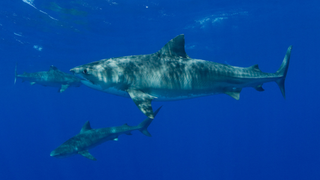
Shark attacks in Hawaii spike in October, and scientists think they know why
By Chris Simms published
Sharktober is real in Hawaii — and it's down to the reproductive pattern of predatory tiger sharks, an analysis of 30 years of data reveals.
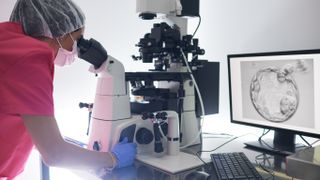
IVF hormones could be delivered with painless 'microneedle' patch someday, early study hints
By Theresa Sullivan Barger published
Scientists are developing a microneedle patch that they hope could someday simplify IVF hormone delivery. They've tested it in animals.

1,400-year-old Zapotec tomb discovered in Mexico features enormous owl sculpture symbolizing death
By Kristina Killgrove published
The president of Mexico called the discovery of a 1,400-year-old Zapotec tomb in Oaxaca the "most significant archaeological discovery in a decade."

The UK has lost its measles elimination status — again
By Nicoletta Lanese published
Measles has been spreading continuously in the U.K. for over a year, meaning the country has lost its elimination status.

People with more 'brown fat' have healthier cardiovascular systems. A new study in mice may explain why.
By Zunnash Khan published
A mouse study shows that beige fat, previously known for its heating function, may also lower blood pressure by keeping blood vessels relaxed. The same may go for brown fat in humans.
Get the world’s most fascinating discoveries delivered straight to your inbox.
 Live Science Plus
Live Science Plus






